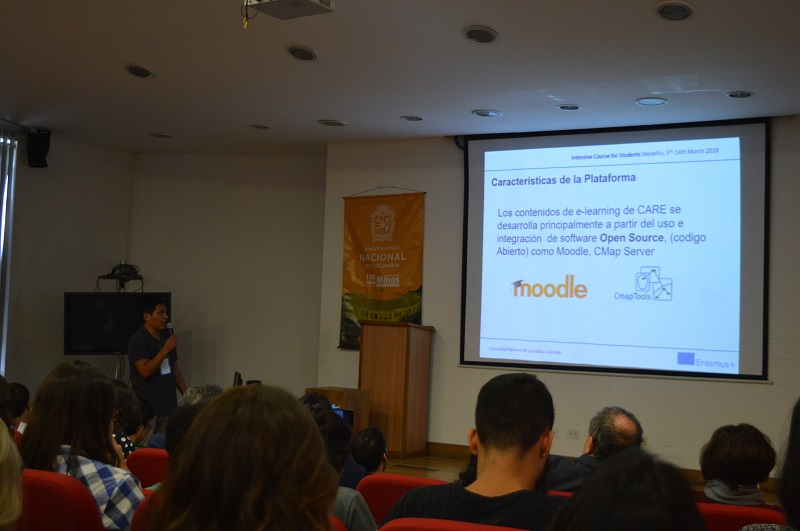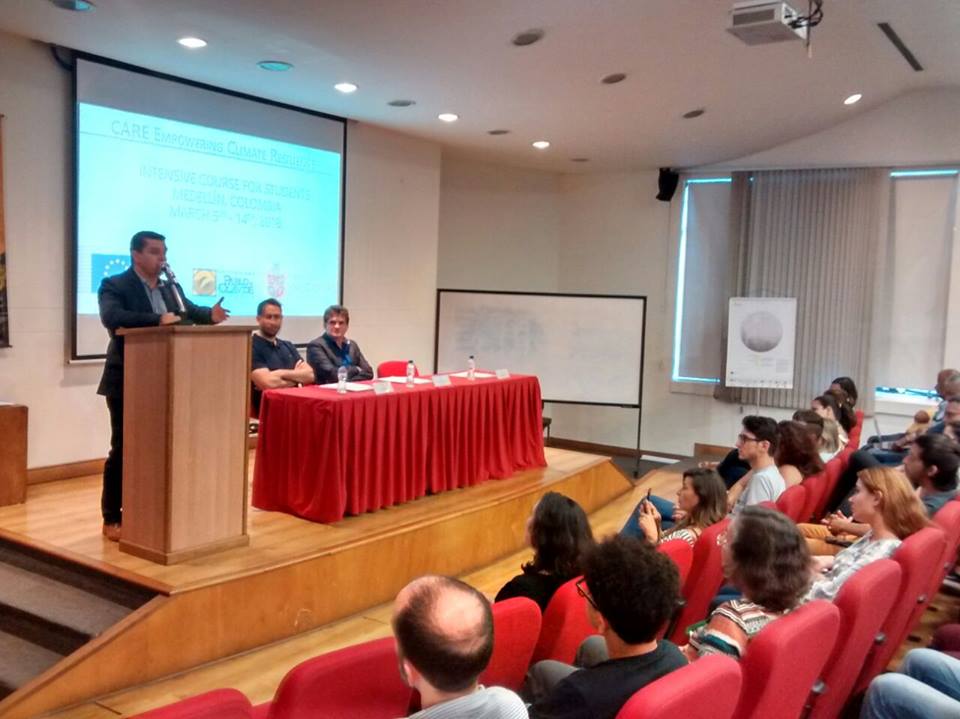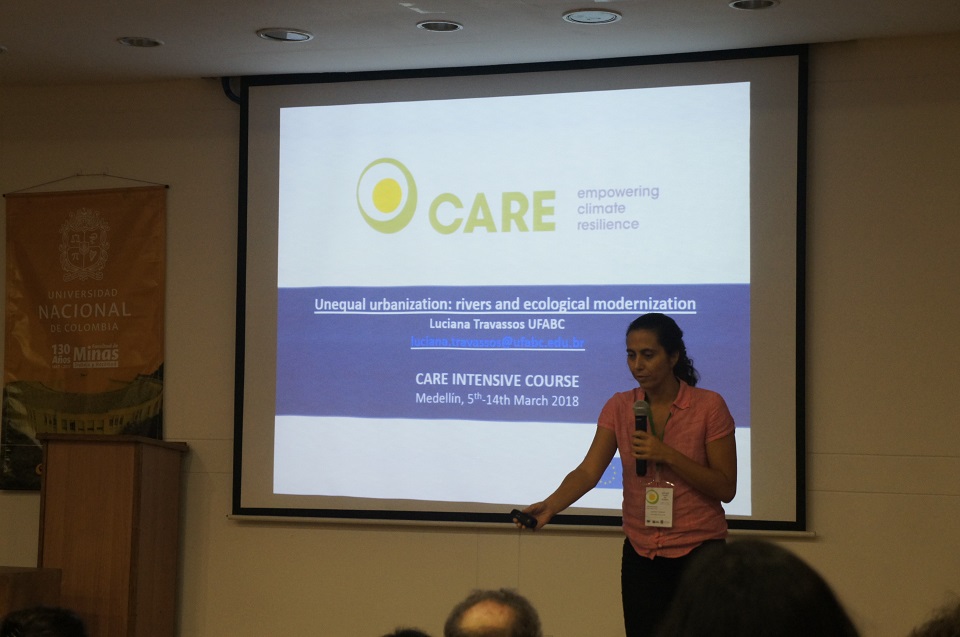Intensive course on urban resilience to climate change in Colombia

The course, dictated from 5 to March 14 at the Mining Faculty of the National University of Colombia in Medellin, was developed within the framework of the project CARE -empowering the resilience to climate change.
SARAS Institute (project partner) was represented by Paula Bianchi, SARAS Communications Officer, who collaborates with the project in relation to dissemination and communication strategics, as well as participating as a student enrolled in the course. The activity was joined by a group of advanced students enrolled in the Environmental Management BA at the University Center of the Eastern Region (CURE) together with Isabel Gadino, Adriana Goñi Mazzitelli and Natalia Barindelli, lecturers and members of the Group of Territorial Studies (GET-CURE), who are linked to the project on behalf of the University of the Republic, Uruguay.
CARE project aims to promote HEI staff’s and students’ interdisciplinary skills by developing innovative educational approaches to planning. Furthermore, it aims to bring the challenge within the core of urban municipalities by directly and indirectly training professionals and officers to shape resilient policies.
The workshop involved 150 undergraduate and postgraduate students with teachers from educational institutions in Europe and Latin America involved in the project. Europe attended the Politecnico di Milano, Centro Regionaled’intervento per Cooperazione Onlus, the Pablo de Olavide University, the Union Iberoamericana de Municipalistas, the Centro di Ricerca Polyhedra and the Universiteit Twente, while America Latin attended the Pontifical Catholic University of Chile, the University of Concepción, Universidade Federal do Pará, the Fundação Universidade Federal do ABC, theUniversidad de Ibagué, Universidad del Tolima, Universidad Nacional de Colombia, University of the Republic, Universidad Tecnológica Equinoccial and State Technical University of Quevedo.
During the days of intense activity, we combined practical work with presentations from teachers and guests. The students worked in the familiarization and use the Cmap tool (or maps), an instrument of communication and analysis that allows to represent complex problems through “nodes” and “key concepts”. As a result of the use of the platform, a visual summary of the problem, concept or strategy developed in a simple way was obtained.
The working groups, formed by students from different disciplines and countries with the aim of promoting reflection and analysis of the problem of climate change, generated different conceptual maps from case studies in urban areas vulnerable to the effects of climate change, and the analysis of projects and policies in different countries of Latin America.
The next activity is scheduled for the month of September in Santiago, Chile, where the Closing Congress will take place, with the purpose of presenting the results of the project and discussing tools and educational approaches with national and international experts.
Please click here to get more information about the project.




